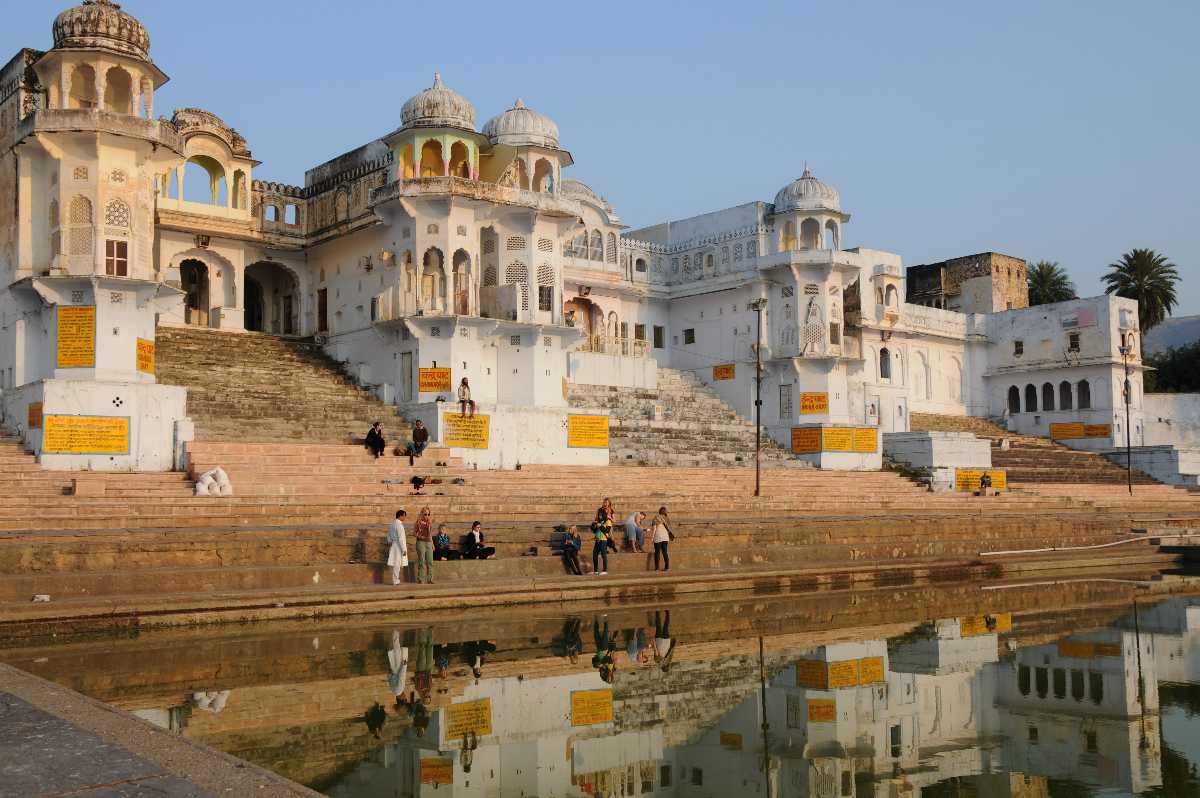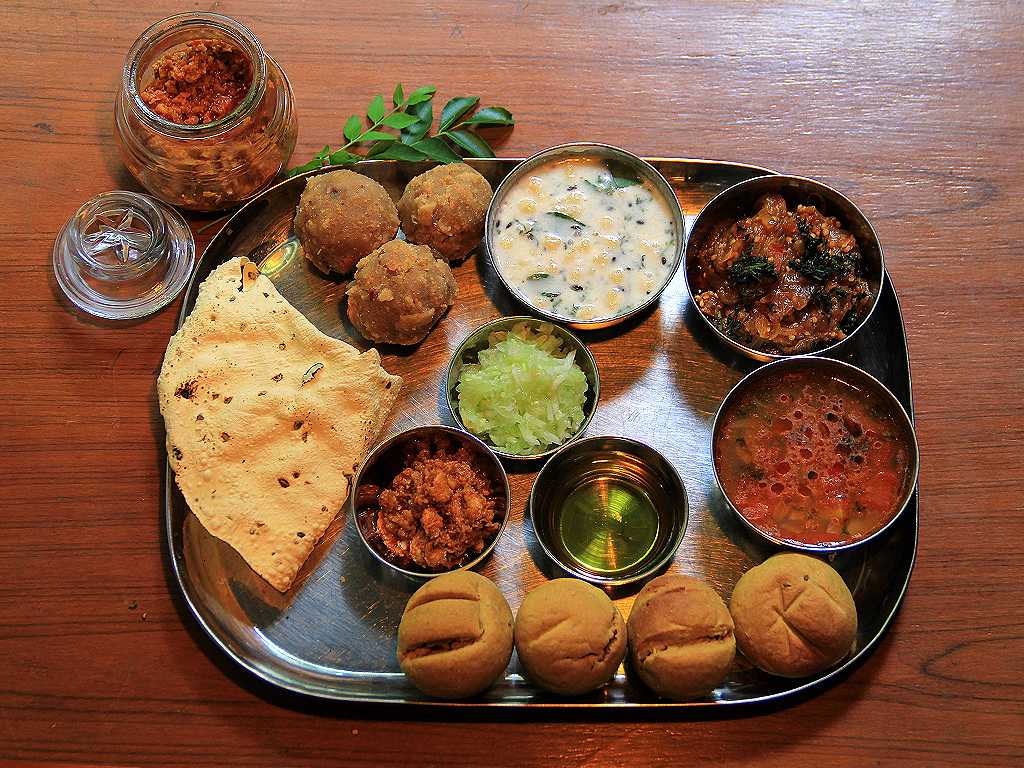Pushkar: The Land of Peace and Spirituality
Pushkar is one of the India’s oldest existing cities and the
name Pushkar means ‘blue lotus flower’ in Sanskrit where “Pushpa” means flower
and “Kar” means hand.
Thousands of visitors and devotees choose Pushkar as their
location of choice. Legend has it that Pushkar is home to more than 400
temples, ghats, and palaces that paint a completely distinct picture of the
city. The only temple of Lord Brahma in the nation and the world is located in
Pushkar, a significant Hindu pilgrimage site. According to Hindu mythology,
Lord Brahma is credited with creating the world.
Must- See Attractions of Pushkar
Brahma Temple
The most well-known temple in Pushkar is the Brahma Temple,
which is supposedly one of the few in the world due to a curse placed on it by
Saraswati, Brahma's consort. The hans (goose sign) of Brahma is located above
the entrance gateway, and a red tower marks the temple. Dedications to the
deceased are inscribed on the walls and floor inside. There is also a bathing
ghat dedicated to Brahma and below the Brahma temple.
Savitri Mata Temple
The Grand Savitri Maa temple is hike to the mountaintop
Saraswati Temple is easy thanks to the ropeway (9.30am to 7.30pm, round trip
₹119). At any time of day, the views from the temple, which faces the lake, are
breathtaking. Alternatively, to avoid the heat and catch the best light, you
may hike up for an hour before sunrise.
Pushkar Lake
This holy lake serves as the centerpiece of the well-known
Pushkar Fair. Every year, thousands of pilgrims come to the lake to take a
sacred bath.
The lake is home to a wide variety of fish and migrating
birds, making it one of the best sites to visit in Pushkar. The location's
serene atmosphere is enhanced by the abundance of exotic plants and animals in the
surrounding area. Pushkar Lake, surrounded by gorgeous hills, enchants visitors
with its placid waters, while neighboring sites like Saint Agasthya's cave
heighten the appeal of this revered location. In Hindu texts, Pushkar Lake is
revered as the "Tirtha Raj," or king of pilgrimage locations, and it
enhances the souls of explorers.
Pushkar Bazaar
There are many things to explore in Pushkar, and the Pushkar
Bazaar is a well-known destination that you should not miss when planning your
Rajasthan vacation. In addition to selling a variety of goods, the market acts
as a cultural center, offering information about the local way of life. The
market, which is well-known for its rose pulp, gulkhand, and syrup, enthralls
customers with its lively ambiance and wide selection of affordable goods.
You can explore the Pushkar Bazaar to purchase Rajasthani
attire, embroidered textiles, brass cookware, glass items, camel leather bags,
and belts, all of which highlight the area's rich artisanal heritage. Numerous
unique products appeal to international visitors, showcasing the special allure
of Pushkar's goods. With its strong ties to Hindu mythology, the bazaar
radiates a spiritual atmosphere, which is reflected in its handicrafts and
religious artifacts.
Things To Keep In Mind When Visiting Pushkar
When planning a visit to Pushkar, there are several key
things to keep in mind to ensure a smooth and enjoyable experience:
Respect Cultural Sensitivities: Pushkar is a sacred
town with strong religious beliefs and traditions. You should dress modestly,
particularly when visiting temples and other religious sites. It’s also
important to respect local customs and practices, such as removing shoes before
entering temples and refraining from public displays of affection.
Be Mindful of Photography: While Pushkar’s vibrant
streets and colourful markets may tempt you to capture every moment, asking for
permission before photographing people, particularly locals and religious
ceremonies is essential. Some areas may have photography restrictions, so
always respect local guidelines.
Stay Hydrated: Rajasthan’s climate can be hot and
dry, especially during summer. It’s crucial to stay hydrated by drinking plenty
of water throughout the day, especially if you’re engaging in outdoor activities
or exploring the town on foot.
Bargain Wisely: Pushkar’s markets are famous for
handicrafts, textiles, and jewellery. While bargaining is common, it’s
essential to do so respectfully and with a smile. Remember that while getting a
good deal is part of the fun, undercutting excessively can be disrespectful to
the artisans.
Beware of Monkeys: Pushkar, like many Indian towns,
has its share of monkeys, particularly around temple areas. While they may seem
playful, keeping a safe distance and avoiding feeding them is essential to
prevent any potential conflicts or accidents.
Plan Around Festivals: Pushkar hosts several
festivals throughout the year, such as the Pushkar Camel Fair and religious
festivals like Diwali and Holi. These events draw large crowds and may affect
accommodation availability and transportation. Planning your visit around these
festivals can provide a unique cultural experience but be sure to book
accommodations and transportation in advance.
Respect the Environment: As a responsible traveller,
it’s essential to minimise your environmental impact while visiting Pushkar.
Avoid littering and dispose of waste responsibly.
Unique Treats in Pushkar
Among the essential foods to try in Pushkar are:
Malpua: It is widely said that a trip to the city isn't
complete without sampling the malpuas available there. These consist of sugar,
cow's milk, flour, and butter. It is highly favored by the locals and is also
presented to God. Taste the best selections on Halwai Street and from Royal
Bakery.
Dal Bati Churma: Dal signifies lentils, bati denotes
baked wheat balls, and choorna represents sweet cereal powder; it is typically
served during lunch or dinner time.
Lassi: This involves mixing saffron, cardamom, salt,
and sugar together. The blend is prepared in a clay vessel by stirring with a
wooden implement. Lassi is recognized for its high nutritive value and is
packed with vitamins and proteins.



0 Comments